Philippine Children’s Songs, Spoken Rhymes and Games for Teaching
Book One
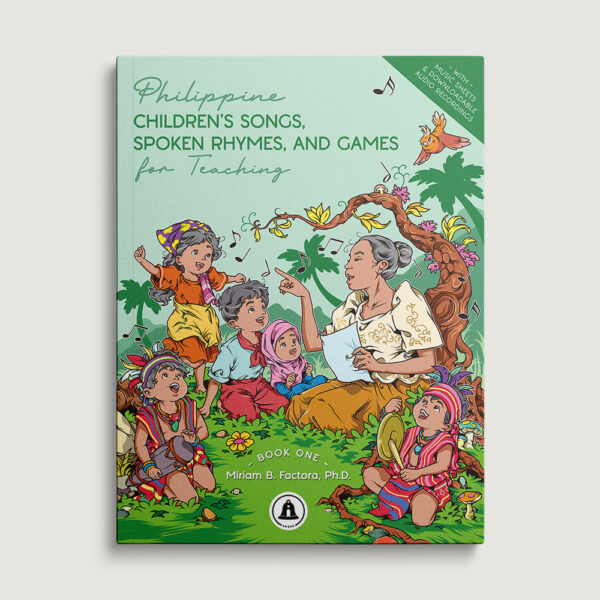
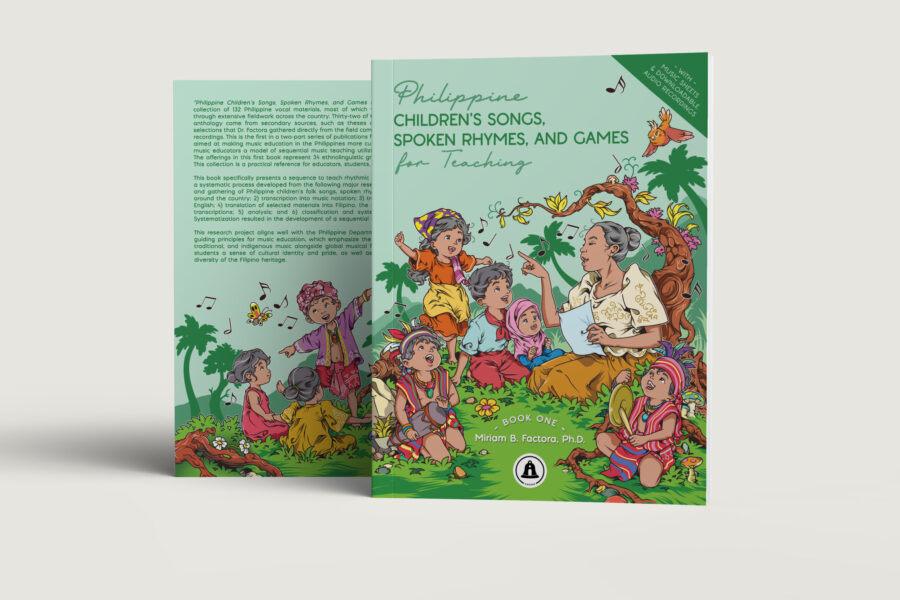
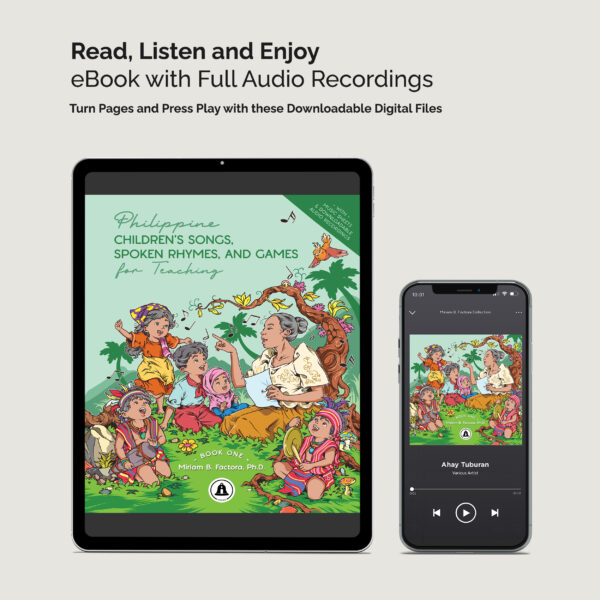
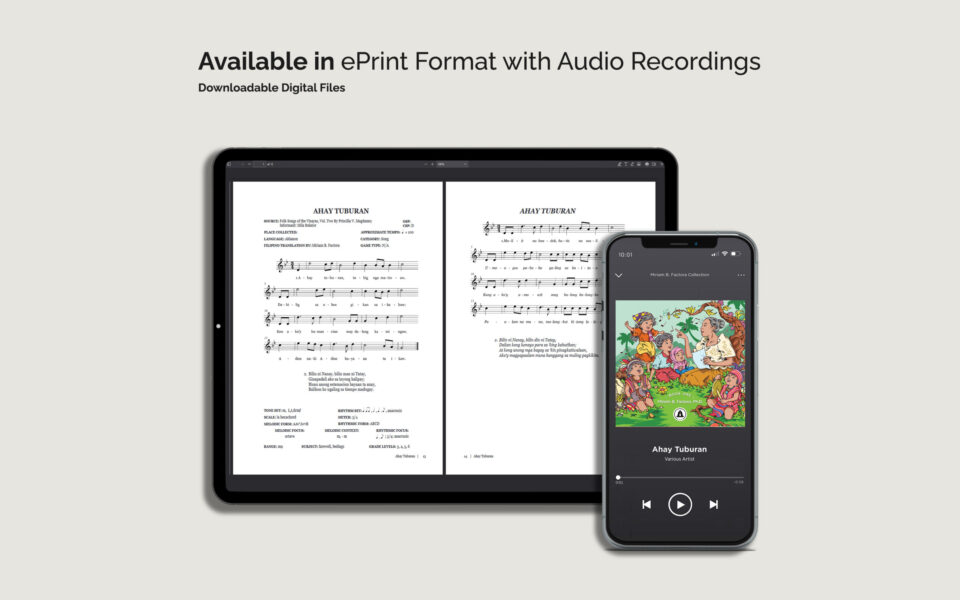
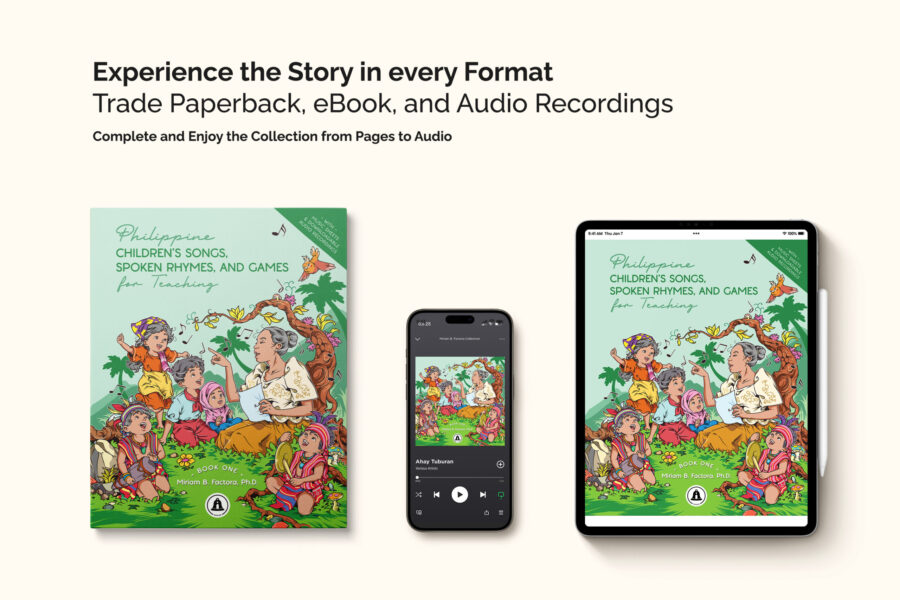
“Philippine Children’s Songs, Spoken Rhymes and Games for Teaching, Book One” is a collection of 132 Philippine vocal materials, most of which were collected by Dr. Factora through extensive fieldwork across the country. Thirty-two of the items that supplement this anthology come from secondary sources, such as theses and existing publications. The selections that Dr. Factora gathered directly from the field come with 98 downloadable audio recordings. This is the first in a two-part series of publications focused on Philippine materials aimed at making music education in the Philippines more culturally relevant and providing music educators a model of sequential music teaching utilizing Philippine vocal resources. The offerings in this first book represent 34 ethnolinguistic groups from across the country. This collection is a practical reference for educators, students, and cultural enthusiasts.
This book specifically presents a sequence to teach rhythmic and melodic concepts through a systematic process developed from the following major research components: 1) collection and gathering of Philippine children’s folk songs, spoken rhymes, and musical folk games around the country; 2) transcription into music notation; 3) translation of the materials into English; 4) translation of selected materials into Filipino, the national language, with music transcriptions; 5) analysis; and 6) classification and systematization of the materials. Systematization resulted in the development of a sequential music teaching model.
This research project aligns well with the Philippine Department of Education’s goals and guiding principles for music education, which emphasize the importance of teaching local, traditional, and indigenous music alongside global musical forms. This approach instills in students a sense of cultural identity and pride, as well as an appreciation for the rich diversity of the Filipino heritage.
To access your audio tracks, please follow the link in your book to get the password and instructions.
Dr. Miriam Factora’s collection of songs and rhymes is definitely a huge help in preparing and planning lessons. She created a massive songbook of Filipino materials and it opened doors for Filipino music teachers like me to revisit and gain more understanding of our own heritage, culture and traditions. We use the songs in our daily lessons and even in choir. Singing the folksongs also help students learn the language, unlocking words and dialects that are not familiar to them. Every song is like a visit to a town or province in our country which makes the singing experience more like an adventure, not only for the kids but also for the educators.
Venitta Magpantay
Music Teacher | Ateneo de Manila Grade School • Quezon City, Philippines
These books are real gems for music teachers. The games, rhymes, and song selections in these books are research-based, culture-based, and values-laden. From a broad perspective, these books served as a means to provide “quality education” and answered the problem of “lack of instructional materials” for Filipino music teachers. I have used these books among music education students and in the professional development programs of Filipino teachers around the country.
Dolores T. Andres, Ph.D.
Associate Professor of Music Education | University of Santo Tomas, Conservatory of Music • Manila, Philippines
Associate Researcher, National Research Council of the Philippines
Ever since I discovered Dr. Factora’s works in the Kodály courses presented by the Kodály Society of the Philippines, her books—namely Philippine Children’s Songs, Spoken Rhymes and Games for Teaching Books One and Two—have been my references for songs coming from the Filipino culture. These books have remarkably helped me in my lesson planning. I use the rhymes and games for young learners and the more complex songs to teach more complex concepts to upper-grade students.
Raquel Ceradoy
Former Music Teacher | De La Salle Santiago Zobel School • Muntinlupa, Philippines
Music Teacher | St. Peter's College • Palmerston North, New Zealand
Dr. Miriam Factora's collection of Filipino folk songs and rhymes has given us a solid foundation and a clearer direction in the Philippine Music Education. The adaptation of the Kodály Approach to the Philippine setting was made possible because of her collection. It was through the use of these songs and rhymes that both teachers and students were not just able to present and learn the concepts well, but they were also able to revisit and appreciate more the Filipino culture and traditions.
Roselle Elinore Matias
Music Teacher | Ateneo de Manila Grade School • Quezon City, Philippines
